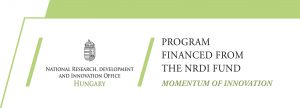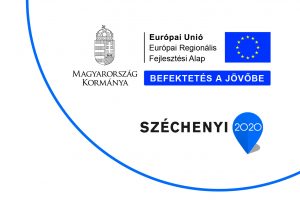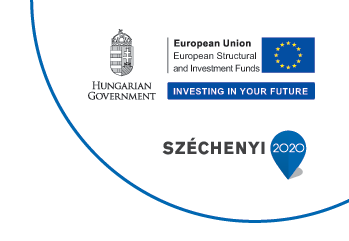Pharmaceutical Chemistry Laboratory of the Future Platform Project - Pharmaceutical research in an interconnected world

The primary objective of the pharmaceutical chemistry laboratory practice has not changed: drug discovery through research and experiments. Although internal and external factors influence the methods and the ways in which scientists work and collaborate, chemical methods must be reformed, updated and made more efficient in order for more drug candidates to be discovered.vChemists encounter the following problems that significantly slow down the process when discovering and developing drugs:
- There are too many interfaces among the discovery, development and process engineering groups that could potentially cause misunderstandings regarding the optimization of the delivery and scaling of pharmaceutical chemical goals.
- Processing and analyzing chemical analytical data are often carried out manually, which leads to important results going unnoticed.
- This concerns internal and external results alike (e.g. by contract research organizations) as well as the ways in which we apply and process data to identify patterns related to the chemistry of the future or biological goals.
- The visualization and presentation of data as well as the management of laboratory technology have not developed in the same direction and at the same pace as technology used and operated at home.
- Not all chemical processes are available in a laboratory, meaning, it might need to be transferred to a different department or it might need to be outsourced. Some processes are not scalable. This leads to some sessions being avoided, limiting the number of target compounds.
The Pharmaceutical Chemistry Laboratory of the Future Platform aims to solve these problems by connecting the disciplines of flow chemistry synthesis, chemical analysis and compound purification into one process within a platform. The whole process will be automated. Therefore, chemists will only need to select the target molecule to be produced and the AI of the platform will take over the optimization and the synthesis. The platform is expected to significantly speed up the synthesis and production of potential drug candidates.
This will lead to an increased number of candidates within a shorter period of time, boosting the income of pharmaceutical companies and providing the general public with a larger variety of drug treatments. The wider chemical space brought by the platform will make new compounds available, which is unimaginable using standard conventional technology. This opens up the road to the development of new therapies and potentially even new chemical sciences.
ThalesNano and University of Szeged Awarded $4.8 Million National Innovation Grant To Create Revolutionary Hydrogen Generation and Carbon Dioxide Valorization Platforms
ThalesNano and University of Szeged have won a grant as part of the highly competitive GINOP (Economic Development and Innovation Operational Program) 2.2.1-15-2017-0041 program from the Hungarian Ministry for National Economy. The project will be implemented under the Széchenyi 2020 program using funds from the European Union.
The total project budget is $4.8 million and will be spent over four-years to develop state-of-the-art platforms that combine renewable energy storage with continuous-flow electrochemical CO2 conversion to valorizable products.
The grant will allow ThalesNano and the University of Szeged to continue building on their ground-breaking expertise in electrochemistry, nanocatalysis, and continuous-flow reactor development towards inventing environmentally beneficial, and economically lucrative technologies.
In addition to platform creation, funds will be used to expand ThalesNano’s Szeged-based alternative energy R&D; center, which we expect to become established at the newly built ELIPOLIS science park in 2018 and create a number of new jobs for the area.
In a joint statement, Dr. Ferenc Darvas (President of ThalesNano), Dr. Janaky Csaba (Project Research Director-University of Szeged), Richard Jones (Project Director-ThalesNano), and Alex Drijver (CEO-ThalesNano) announced:
"To develop technologies that can help reduce the rising CO2 concentration in our atmosphere is of tremendous importance to the future of this planet and our existence on it. Rather than choose the most common method, CO2 capture and storage (CCS), we aim to combine ThalesNano’s and University of Szeged’s expertise in high pressure hydrogen generation, flow technology, electrochemistry, and catalysis to generate unique platforms that will capture CO2 and convert it into useful synthetic materials using renewable electricity sources. Not only will this system help reduce the industrial CO2 output into the atmosphere, but we also expect it to help reduce the impact of large-scale chemical production through carbon recycling. A system that can be applied not just here on Earth, but also for future Mars colonization. ThalesNano and the University of Szeged have always maintained close ties through innovative collaboration projects. With this financial support, it will make our partnership even closer and enable us to make one of our most important innovative dreams a reality.”
Increasing effectiveness in oil industry research on the horizon

Next to the continuous growth of the renewable energy industry, increasingly greater emphasis is placed on maximizing the effectiveness of extracting fossil fuels and their environmentally friendly processing.
ThalesNano’s existing initiatives in this field have just received a major boost via the award of a new grant from the Competitive Central Hungary Operational Program 2.1.1-15-2016-00062 tender. The grant will enable ThalesNano to accelerate the development of a modular testing device capable of assisting the leading research institutes of the world in both extraction and processing.
ThalesNano Inc. entered the flow chemistry market in 2004 with the first member of its still available H-Cube® product family, which won numerous awards in and outside of Hungary as well. In the past 10 years, the company launched a number of products that are used in the everyday laboratory practice already in 42 countries. The product range supports the activities of the world’s leading pharmaceutical, agrochemical, fragrance and food industry companies in early stage research and initial upscaling phases.
Based on this background, ThalesNano Inc. entered into a collaborative development with Prof. Rigoberto Advincula from Case Western Reserve University in the USA, which is at the forefront of oil industry research. The prototype developed as a result of this joint effort is already successfully implemented at one of the world’s biggest oil industry firms, thus, laying the groundwork for the success of the further development carried out through the grant.
The use of robotics plays a key role in the project, along with the fast modification of experimental parameters for the rapid evaluation of results. Thanks to the high degree of automation, the product will facilitate the research and developmental processes of petrochemicals or other closely-related fields of the same parameter space (pyrolysis, biomass applications).
ThalesNano Inc. received a grant of HUF 163 703 553 (USD 652 205) through the tender for realizing the development, which, supplemented with its own contributions and utilizing its social capital, significantly contributes to increasing the efficiency of oil industry-related research.

